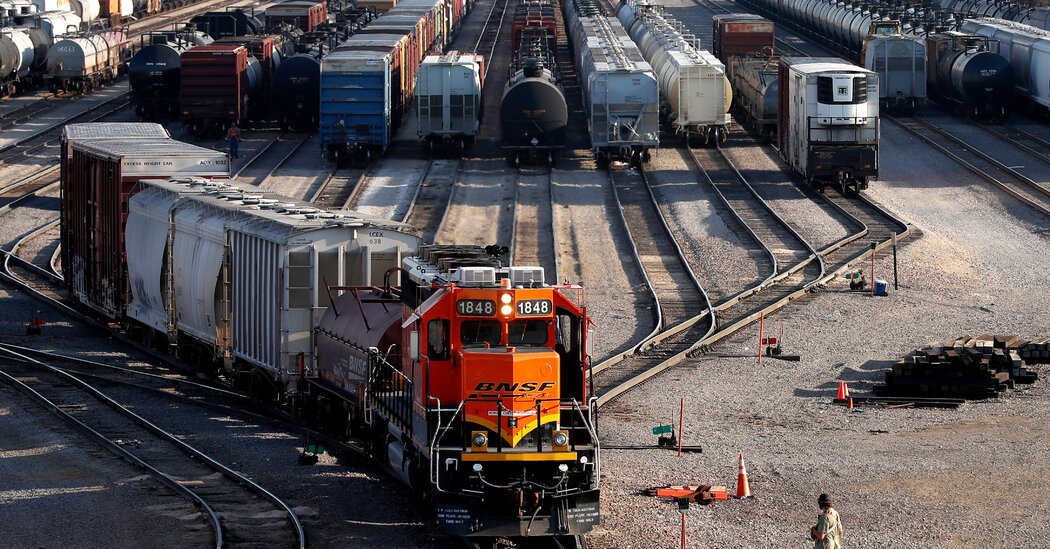
“Failure to finalize an agreement before the Sept. 16 deadline will hurt U.S. consumers and imperil the availability, affordability and accessibility of everyday essential products,” the Consumer Brands Association, which represents manufacturers of food, beverage, household and personal care products, said in a letter to Mr. Biden last week.
The State of Jobs in the United States
Economists have been surprised by recent strength in the labor market, as the Federal Reserve tries to engineer a slowdown and tame inflation.
In a statement over the weekend, Corey Rosenbusch, the president of the Fertilizer Institute, an industry group, said a potential work stoppage would be “bad news for farmers and food security.”
The Association of American Railroads, a freight rail industry group, said a disruption to service would cost more than $2 billion per day in economic output, idle thousands of trains and result in widespread product shortages and job losses. Rail accounts for about 28 percent of U.S. freight movement, second only to trucking’s nearly 40 percent, according to federal data.
More than 460,000 additional trucks would be needed each day to carry the goods otherwise delivered by rail, the American Trucking Associations, another industry group, said in a letter last week asking lawmakers to be prepared to intervene. The trucking industry faces a shortage of 80,000 drivers, so a rail disruption would “create havoc in the supply chain and fuel inflationary pressures across the board,” it said.
In a message on Friday, Steve Bobb, the chief marketing officer of one of the rail carriers, BNSF, encouraged customers to ask Congress to intervene. His counterpart at Norfolk Southern echoed that request to its customers over the weekend, too.
Senator Roger Wicker of Mississippi, the top Republican on the Committee on Commerce, Science and Transportation, said on Friday that he was hopeful that a strike could be averted, but was prepared to act if not.